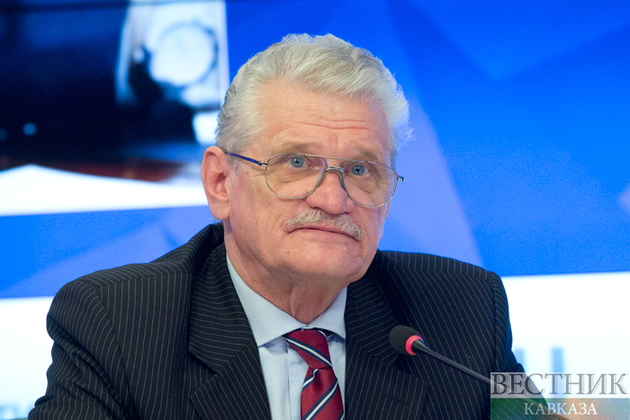IAEA Director General Rafael Grossi proposes a new nuclear deal with Iran, since in the absence of dialogue the situation is developing uncontrollably. Vestnik Kavkaza spoke with Vladimir Sazhin, Senior Researcher at the Center for the Study of the Near and Middle East of the Russian Academy of Sciences, about why the previous deal cannot be restored and what will happen next.
- In your opinion, what caused Grossi’s initiative? Is it really impossible to restore the 2015 deal?
- I think that everything has recently been leading to Mr.Grossi's statement. Experts agree that the JCPOA has literally exhausted itself. This was a very good document for 2015 - it did not solve all the issues, but in any case, it kept Iran from creating nuclear weapons for decades.
Unfortunately, in 2018, President Donald Trump withdrew the United States from the agreement and thereby destroyed the system associated with the JCPOA. Therefore, since 2019, Iran has actively begun the development of nuclear technologies. This happened practically without control - the IAEA had little control over Tehran's actions, and in 3-4 years Iran has made huge progress in the development of nuclear infrastructure. As a result, Iran's current level of development of its nuclear program is completely incomparable with the level of 2018.
Until September 2022, active negotiations were underway to revive the JCPOA, but they were unsuccessful. I think these negotiations could not lead to success, because while they continued, the level of development of Iran's nuclear program began to significantly exceed the level for which the JCPOA was created. Thus, a new document was indeed required.
- When can we see the start of work on a new nuclear deal?
- Such steps are already being taken. The Americans have been negotiating with the Iranians over the past months, and this work has results. The negotiations were not direct, they were mediated, but nevertheless the parties agreed on the exchange five prisoners on each side and the unfreezing of $6-10 billion of Iranian funds frozen by the USA in South Korea and partially in Iraq. In response, Iran will sharply reduce its 60% uranium production. Everything was moving towards the implementation of these agreements, but the outbreak of the war in Gaza changed the entire situation and the US-Iran agreements were suspended.
- What are the prospects for resuming these agreements?
- It is difficult to say how the situation will develop further. In the USA there are very strong anti-Iranian sentiments among members of both parties in Congress. Therefore, now it is not the time to expect Congress to agree to a final solution to the problem associated with unfreezing of the deal. Iran's opponents among congressmen say that the United States will "finance terrorist activities" this way. On the other hand, there are people, especially in the White House, who understand that this issue must be resolved.
In my opinion, the first thing that is needed for this is an end to the war in Gaza. Then the issue will probably be postponed until the presidential elections in the United States, because the situation in Congress is quite tense, and there is no need to expect any serious steps from the congressmen regarding Iran. In general, it is necessary to conduct a dialogue on specific compromise ways for the United States and Iran to resolve the Iranian nuclear program, regardless of whether the result will be positive or not, and only then fight for the implementation of this decision.
- How can the international community interest Iran in the new nuclear deal?
- It is important for Iran to resolve the problems created around its nuclear program. I mean, first of all, economic sanctions, since they have a very strong impact on the Iranian economy and banking and slow down the progressive development of the whole country. Therefore, Iran urgently needs easing of sanctions. This can only be achieved through the solution of the Iranian nuclear problem. That is, Iran is already interested. The problem here is the Americans, who are less interested in working with Iran now, as they are more interested in solving their own internal problems. As time passes, some progress is possible, especially after it becomes clear who is the new President of the United States. So far, further dialogue is required.






